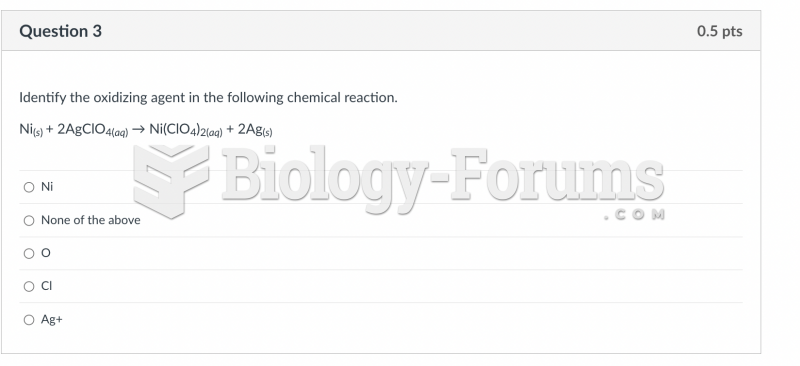|
|
|
Though newer “smart” infusion pumps are increasingly becoming more sophisticated, they cannot prevent all programming and administration errors. Health care professionals that use smart infusion pumps must still practice the rights of medication administration and have other professionals double-check all high-risk infusions.
The calories found in one piece of cherry cheesecake could light a 60-watt light bulb for 1.5 hours.
The FDA recognizes 118 routes of administration.
In 1844, Charles Goodyear obtained the first patent for a rubber condom.
In Eastern Europe and Russia, interferon is administered intranasally in varied doses for the common cold and influenza. It is claimed that this treatment can lower the risk of infection by as much as 60–70%.







